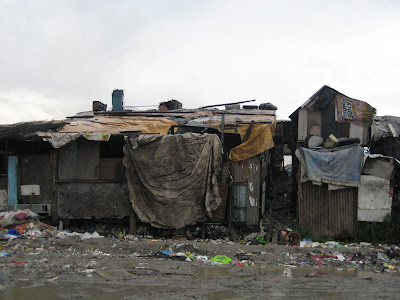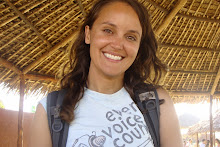background of the author: Peter Godwin was raised in Zimbabwe, studied at the Cambridge and Oxford, and became a foreign correspondent for the Sunday Times, London...BBC TV, reporting from more than sixty five countries. Since moving to New York, he has written for many publications including the NY Times Magazine, National Geographic, Time and Newsweek.
This passage is one in which he was talking about his 73 year old mother who still goes into the hospital everyday in Zimbabwe to work...
He writes:
"I sit at the back of the room behind the rows of patients: nurses and orderlies, maintenance men and cooks and cleaners. All of them are black. Two-thirds of them have contracted HIV. In Shona they now call it mukondombera, which means "a plague". It has become so common that my mother can usually diagnose someone at the foorway of her examining room. As a patient politely knocks on the metal door frame, she already knows what is wrong.
There are no more consulting physicians and psychiatrists now. And antiretroviral drugs are not yet available, so there is no treatment at all, there is only shame. Shame and its offspring, secrecy. The death notices and the obituaries only mention the opportunistic diseases that actually felled the victims. They never mention that these diseases galloped in through the open gate of a collapsed immune system--- collapsed because of AIDS.
And sometimes, especially when it is a man who is infected, my mother says, he has a terrifying hunger for revenge. If he is going to die anyway, then he will infect as many women as he can before he goes, because it is a woman who has done this to him, a woman who has given him this sickness.
There are orphans, so many orphans. In an African society where there has necer been much of a need for orphanages or nursing homes because the extended families have always looked after their own, there is suddenly a great need for both. The people in the middle die, leaving the very young and the very old behind. Deep in the bush, whole villages are being found, alone. And these children walk miles to fetch the water and collect the firewood and plant the crops and cook their meager food, and sometimes they even try to keep on going to school, all by themselves.
When Robert Mugabe (the president), resentful at his overshadowing on the African stage by Nelson Mandela, sent thousands of soldiers to fight the rebels in the jungles of the Congo in return for diamonds for himself and his cronies, many of the soldiers came back on leave infected. it was said that whole units came back with the virus, shared among them by the bar girls in the noisy village shebeens; and the camp followers who became their "temporary wives" and even bore their children; and by the timid tribal girls deep in the forest clearings, who the soldiers found on patril, girls who had never had any money or owned anything like radios or bicycles or flashlights or even shoes, girls who were afriad of men with guns and would sleep with the Zimbabweans soldiers for a pair of plastic shoes molded in China--- even if they were the wrong size and hurt their broad, path worn feet. they could not talk to the soldiers -- they had no common tongue. They would just see the gun and the plastic shoes, and they would have to make a choice and then later they would die in their villages in the clearings deep in the forest. And the soldiers came back home to Zimbabwe, and they passed this disease on to their wives and to their girlfriends.
Week after week, there are funerals, so many funerals now.
The population projections have to be revised. In 1980, at independence, a man might expect to live to sixty and to see his children grow up strong and have children of their own, and if he was fortunate, a man might even live to see his great- grandchildren bring him gourds of beer before he died. But life expectancy dropped to fifty, and now it has collapsed, all the way down to thirty-three. it is hard to comprehend. At thirty-three, just as people should be in their prime, they suddenly sicken and die. And the training the managers of the mines and the factories and the farms have begun training three people to fill every job, because they know two will not live to do the work.
I can see that my mother is weighed down by the burden of it all. Every day she has t tell dozens of people they have an incurable disease. She sits in her office surrounded by the badges of her profession, her white coat and her stethoscope and they serve only to mock her in ability to heal.
***
BY PETER GODWIN



